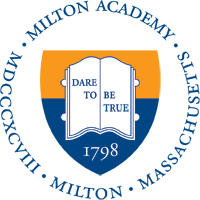
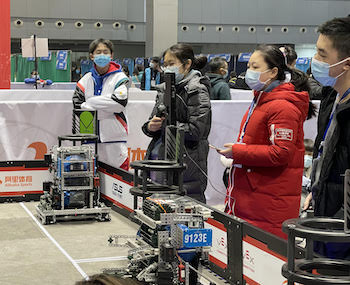
Robotics Team Members Hone Skills for the Future
In a typical year for the Robotics Team, members spend long hours in the robotics lab together, building and rebuilding their robots to get ready for tournaments. This school year, much of that work has gone virtual.
Although the pandemic restrictions on in-person building and competition have been challenging, the season—filled with virtual skills events and international tournaments—has demonstrated what makes robotics special: thinking creatively, developing solutions, and working together.
“At the beginning of the season, we were not sure that we would even be able to build robots,” said Puck Doboe ’22. “However, several students have been able to find space in their homes to work on their robots remotely, which has been fantastic. Even with the distance from Milton, a new student joined a returning student to build a fully functional robot together while doing Zoom classes from their homes in China.”
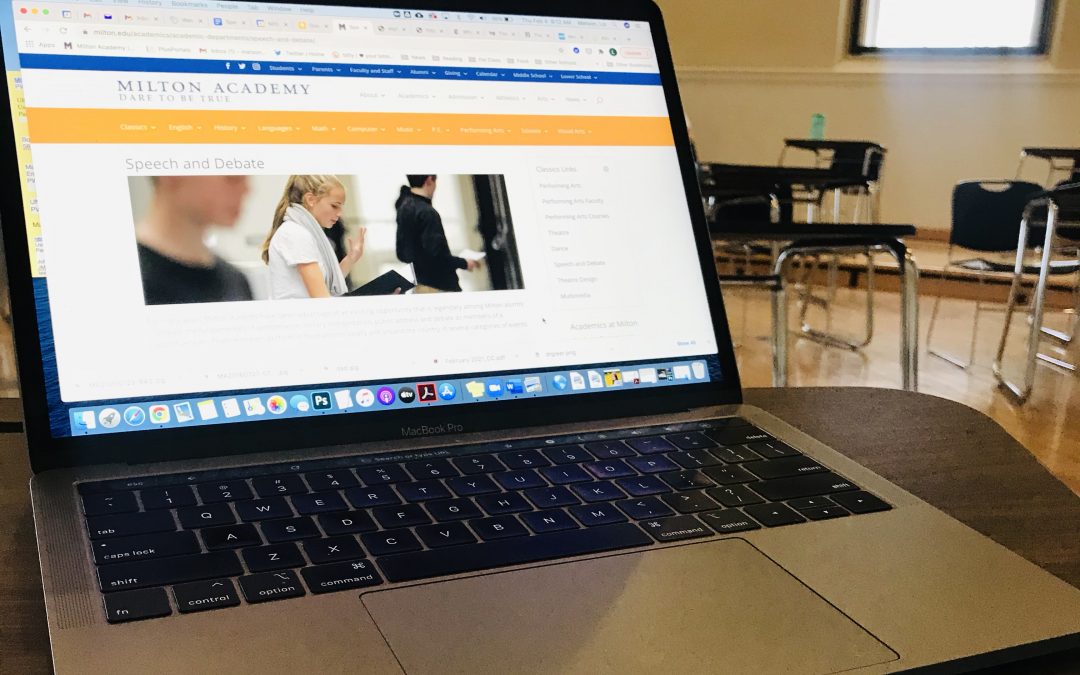
Speech and Debate Team Shines Online
It’s been an unusual but successful year so far for the Speech and Debate Team. They kicked off 2021 competing at the Massachusetts Speech and Debate League’s Happy New Year Tournament, earning several first-place honors in all three divisions of debate as well as numerous speech categories. With all the tournaments held online, students have had to adapt and shift their approach leading to both opportunities and challenges.
Jack Burton’s ’22 primary event is Humorous Interpretation (HI), but he also competes in Duo Interpretation and Dramatic Interpretation. He says the virtual format, especially for interpretive pieces, changes the way the competitor interacts with the audience.
“Bridging a connection with your audience is an essential part of speech,” says Burton. “Without the ability to make eye contact with and elicit live laughter from judges and competitors in the room, speech pieces definitely lose a sense of magic, and it is harder for us performers to engage the audience.”
But Burton, who earned third place at the Yale Invitational, second place at the Duke Invitational, and first place at the Princeton Invitational, says competing online also offers an opportunity to get creative with the camera.
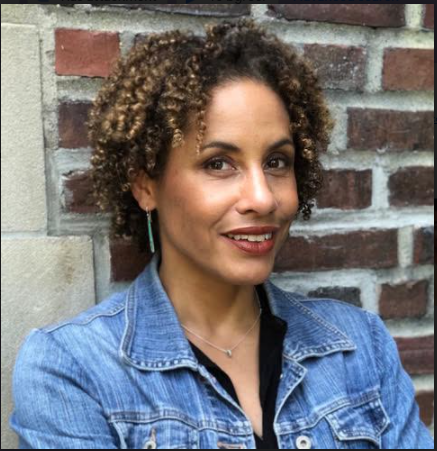
Dr. Brenna Wynn Greer is MLK Jr. Day Speaker
Historian Brenna Wynn Greer spoke about “the perils of symbolic Blackness” and how popular Civil Rights history focuses simplistically on the nonviolent version of Martin Luther King, Jr., rather than the complexities of who he was as a person and an activist. Greer, an associate professor of history at Wellesley College, was this year’s MLK Jr. Day speaker.
Greer said the symbolic King is seen as a kind and gentle Black activist and that, “as a nation, we remain heavily invested in this symbolic King. This is a problem because symbolic King encourages simple and sanitized histories of the Black freedom struggle.”
During the few years before he was assassinated, “King’s criticism of capitalism and his opposition to the Vietnam War made him unpopular not only among U.S. officials but also among Civil Rights activists. This King was a troublemaker, so he was sidelined increasingly as an activist and he was pushed into the shadows as a historical figure,” said Greer.
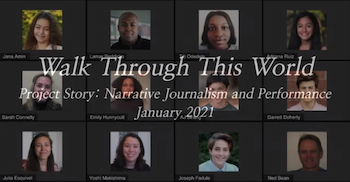
Personal Stories Bridge Distance in Project Story
Our stories connect us and make us unique, students performing Walk Through This World demonstrated this week. Telling the personal stories of Milton community members, the Project Story performers made connections among the School’s students, faculty, and staff.
Storytelling is especially important right now as people remain distant during the COVID-19 pandemic, said English faculty member Hannah Pulit ’07, who with Performing Arts faculty member Peter Parisi teaches the Project Story: Narrative Journalism and Performance course.
“At a time when many of us are feeling isolated and disconnected, we particularly appreciate the affirmation that stories matter, that they remind us of our shared humanity, and that, though we may feel lonely in our struggles, we are never truly alone,” Pulit said to close the performance.
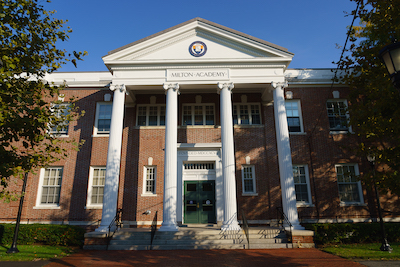
Expanded Opportunities for Senior Projects
Senior projects are a Milton tradition providing graduating Class I students with an opportunity to take a deep dive into a topic that interests them, whether they’re serving the community, exploring a favorite class subject further, learning a new skill, shadowing a professional, or creating art.
Planning for the project period—the month of May through the first days of June—has encountered some obstacles during the COVID-19 pandemic, however, leading to an expansion of project offerings, said Academic Dean Heather Sugrue.
“We wanted to provide some more options and build something that would assume our current pandemic restrictions remain in place,” she said. “So that means that we can’t plan for students having internships or working off-campus. We needed to give some more options.”
The new offerings this year include the choice of more than a dozen seminars coordinated by adults in the Milton community. Topics include creative writing, animation, designing educational games, the historical archeology of Milton, justice and law in the movies, geology, cooking, Latin epigraphy, prize fiction of 2020, race and the war on drugs, military history, the future of schools, and more.

UnTextbooked: A History Podcast for the Future
Three Milton students, Jana Amin ’21, Will Bourell ’23, and Elliot Smith ’22, joined 12 of their peers across the country in creating and producing UnTextbooked, a podcast exploring the real effects of history now and in the future.
“We created UnTextbooked to help address the incomplete narrative found in many history textbooks and to find answers to big questions,” Smith said. “Each of the 15 episodes features one teen podcaster, one book, and one famous historian.”
Smith’s episode, “How a Black teenager and his young lawyer changed the criminal justice system,” features an interview with the historian Matthew Van Meter, author of Deep Delta Justice: A Black Teen, His Lawyer, and Their Groundbreaking Battle for Civil Rights in the South. Van Meter’s book chronicles the wrongful 1966 arrest of Gary Duncan in Plaquemines, Louisiana and the era’s Civil Rights battles; Duncan’s case, argued by attorney Richard Sobol, reached the U.S. Supreme Court, which ruled that states must honor requests for jury trials by defendants in criminal cases.

Discussing History As It Happens
From the violent attack on the United States Capitol to this week’s Inauguration Day, historical moments are unfolding in real time, giving history teachers and their students opportunities to examine current events through a historical lens.
“It’s essential we address January 6th. Our U.S. History classes are a place where one can grapple with the nuance of the Constitution and the ethics of a democracy,” says Matt Blanton, history faculty member. “The challenge is the events unfolding are a moving target—what was previously understood could be different—it requires being nimble. This is a good time to reiterate the best practices of critical thinking.”
In response to the events at the U.S. Capitol, the student History Club held a virtual panel last Thursday evening. Five teachers answered questions submitted by students and Jonathan Cao ’21 and Alex Wang ’21 moderated. Questions included whether the U.S. has ever been culturally unified and if there ever was a time in history where America was “great.” One student was curious about what connections police institutions have to white nationalist organizations and the origins of those connections. Another student asked whether there are similarities between today’s American society and periods in the past such as pre-WWII Germany.
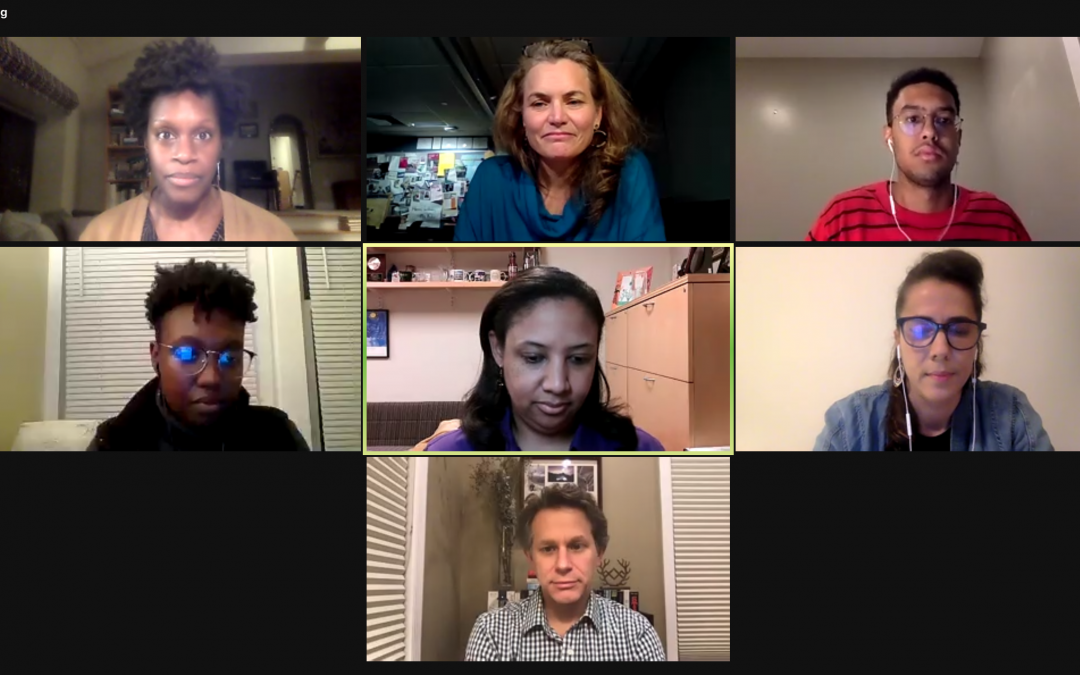
Stories Bring Urgency to Climate Crisis, Say Humanities Workshop Panelists
Humanities disciplines like the arts, history, languages, and social sciences can help make the consequences of the global climate crisis more accessible and urgent for people, said anthropologist and University of Massachusetts-Boston professor Rosalyn Negrón.
“One of the challenges we face is that climate action is highly politicized,” she said. “The polarization is a complex problem that doesn’t have easy solutions, but there is a place for the humanities because there are ways in which the arts, film, creative writing, music, and other things people share that can be avenues for communicating about these issues and taking them out of the political domain.”
Negrón was one of four panelists Wednesday who virtually visited about 150 students from Milton and other area schools to discuss climate change and climate justice, this year’s theme for the Humanities Workshop. She was joined by David Abel, a documentary filmmaker and environmental journalist for the Boston Globe; Zoe Davis, coordinator of the Climate Resilience Project through the City of Boston; and Kristala Jones Prather P’22 ’26, the Arthur D. Little professor of chemical engineering at MIT. Edward Moreta ’18, a Kenyon College student and poet, moderated the panel.
A Message from the Head of School
Yesterday, our nation watched in horror as a violent mob of rioters attacked the United States Capitol in Washington, D.C. I know that I am not alone in my feelings of fear, outrage, and sadness over the criminal acts that unfolded as Congress met to carry out its fundamental role in the peaceful transition of presidential leadership. I offer my support as we try to heal individually and as a Milton community.
The attack on the Capitol was an assault on our democracy, fueled by false claims—an interruption of and attempt to invalidate a free and fair election. Rioters carried and wore symbols of hate. These actions are directly opposed to our values as a School: treasuring respect for one another, celebrating differences, and teaching students to be critical thinkers, seekers of truth, and advocates for justice. Yesterday’s mob represented nothing that we wish our students to emulate or even tolerate.
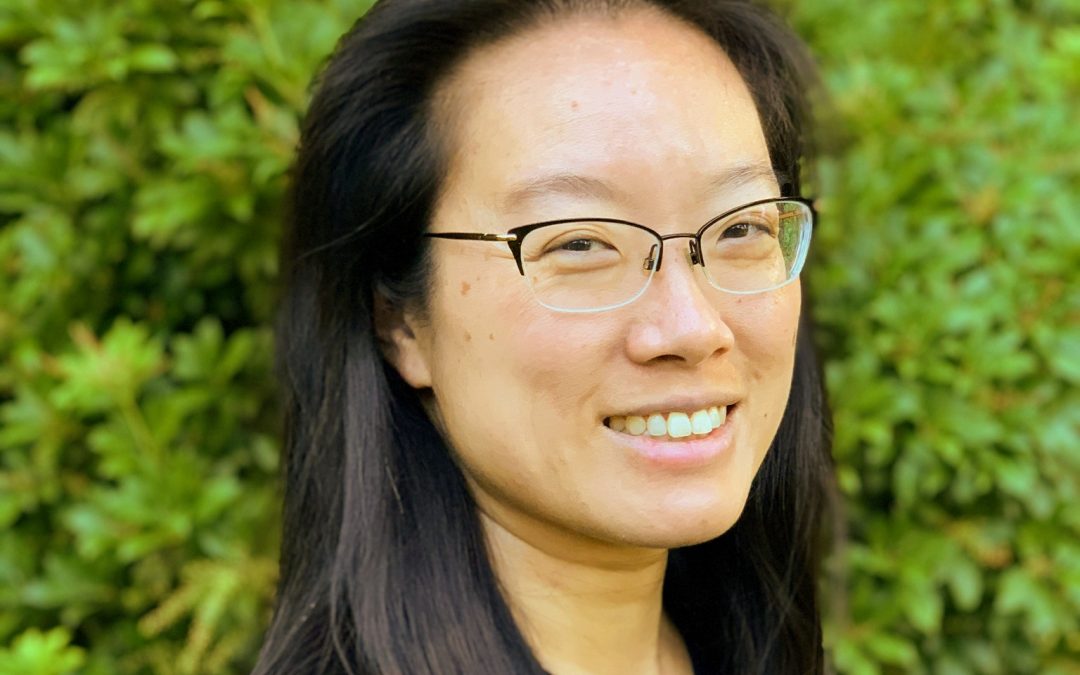
Q&A: Math Department Chair LeeAnn Brash
New Math Department Chair LeeAnn Brash joined Milton, along with three other new math teachers, just before the start of this school year. Although it’s been an atypical year, she has spent the fall teaching Honors Calculus and Geometry and getting to know students and fellow faculty members.
How have your first few months at Milton been?
Very good. There are a million things happening with the COVID-19 pandemic that normally wouldn’t be part of the picture, but all things considered, it’s been really great. The Math Department has been incredibly welcoming and supportive, and I’ve had really good support so far from the other department chairs that I’ve met. There are four of us new to the department this year (Brash, Akinade Adeboye, Cory Bhowmik, and Hubert Hwang) and we’re all people of color, which is really cool.
